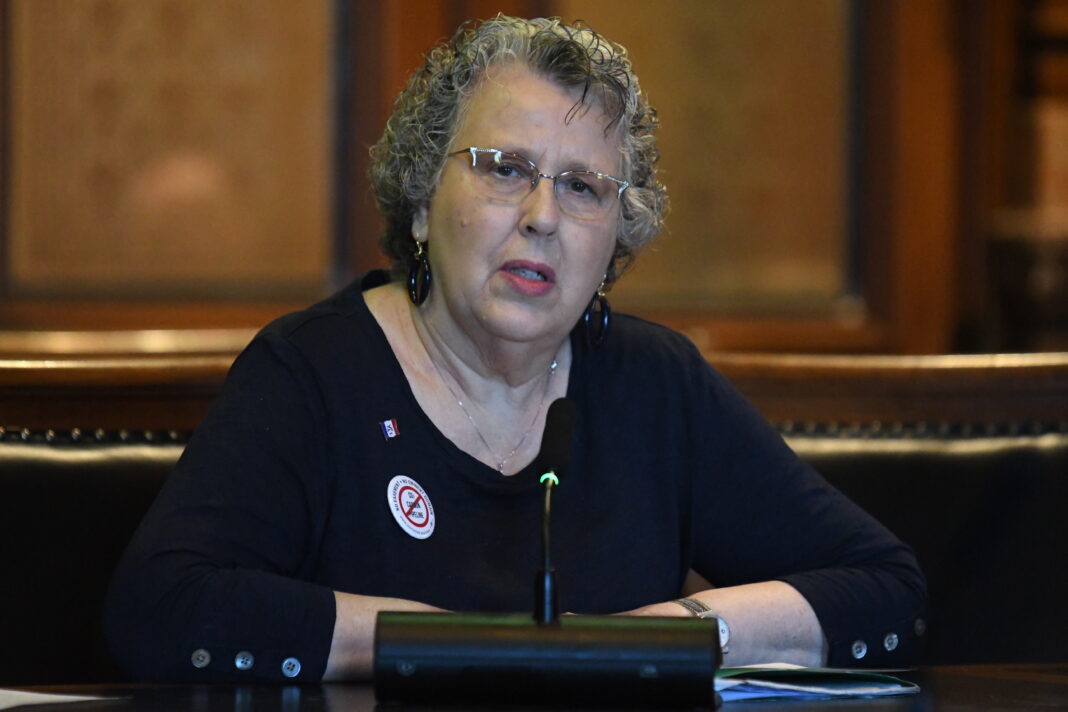A potential answer to concerns over Iowa’s eminent domain law advanced through subcommittee last Wednesday in the Iowa House. House Study Bill 608 would allow members of the legislature to weigh in on the use of eminent domain or a particular project.
Victoria Sinclair testified in support of the bill on behalf of Land Free Action. She noted the bill answers a “gross and unfair process that is harming the property rights of landowners across” Iowa.
“From the (Iowa Utilities Board) employing the private security company of one of the companies applying for the use of eminent domain for a CO2 pipeline to a complete dereliction of duty from the Office of the Consumer Advocate to provide oversight, the situation before us flies in the face of the Founders and their vision for this country,” she said. “The legislature created the IUM, so a mechanism for the legislature to tap the brakes in situations like this is both appropriate and necessary. Section 1 of the bill does exactly this.”
The second section of the bill provides a mechanism for review by a neutral third party.
“If property owners truly have a right to their property, why does Iowa law allow for a private company to put an encumbrance on their land without their consent for five or more years as a determination hangs in limbo,” she asked. “This means these property owners can’t even have their property accurately assessed for as long as the process takes. This is grossly unfair to property owners, as well as companies seeking eminent domain or their operations who must wait years for a decision on a major investment.”
Overall Sinclair said the bill is an “outstanding solution” to protect landowners without harming companies seeking to use eminent domain.
“This isn’t about stopping a pipeline – this is about restoring fairness to a process that has been anything but,” Sinclair said.
Jessica Mazour of the Sierra Club said this issue has brought Iowans together from very different political persuasions. And during the last two years, a number of problems regarding the IUB have surfaced. Mazour said an “unfair playing field” has put landowners at a disadvantage.
“When things like this happen, we need oversight,” she said. “We need somebody to be able to step in and pause the proceeding. And that’s what this bill does.”
Landowners testified in support of the bill. Kathy Stockdale talked about her house and her son’s house being in the “kill zone” of the pipeline.
“If there was a rupture on my farm, we would be dead,” she said.
Stockdale added that the IUB successfully intimidated landowners during the Summit hearings.
“For the first time in my 73 years, I felt like what it must be like to live in a communist country,” she said.
Kim Junker mentioned previous projects that attempted to utilize eminent domain that she had to fight to defeat.
“For the better part of 10 years, this is all I have been doing,” she said.
But she continues to defend property rights while project developers continue to try to get rich through taxpayer-funded subsidies that incentivize such projects.
“Unfortunately we have to keep coming to the Capitol to defend our property rights even though it’s clearly spelled out in the Constitution,” Junker said.
Pete McRoberts of the ACLU of Iowa spoke in favor of the bill as well. He said while the organization takes no position on pipelines, it takes a strong position against the abuse of power as evidenced by the IUB. McRoberts noted the process is “long and corrupt.”
McRoberts said receiving a resolution at the beginning of the project as opposed to during or after a project would benefit everyone involved.
“Just because the IUB grants eminent domain to a company doesn’t mean they’re right,” he said.
Democrat State Rep. Megan Srinivas said she supports the bill as it will reinforce checks and balances that the Constitution was based upon.
Republican State Rep. Steve Holt said he is frustrated the bill even has to exist, noting Iowa has a Constitution, it has law and the GOP has a party platform that plainly states eminent domain should only be used in very narrow cases for public use projects.
Holt quoted George Washington, who said “freedom and property rights are inseparable. You can’t have one without the other.”
“I have no objection to this pipeline,” Holt said. “I have objection to the use of eminent domain for this pipeline. I have objection to these companies using the heavy hand of government to try to seize the private property of landowners in my district for what is clearly a private economic development project that does not meet the constitutional requirement of public use. It does not meet the statute for a requirement of convenient and necessary. It violates my party’s platform, which my party is supposed to stand up for.”
Holt added it is “extremely disappointing” the Iowa Senate did not advance legislation passed by the House last year to address this issue.
A new concern surrounding the proposed pipeline projects for Holt is how the drought will impact Iowa. While he said he doesn’t know how much water the projects will use, but he has heard it will be a lot.
“How will that impact these communities with the amount of water that could be used,” he asked. “This isn’t about ethanol. This isn’t about corn or agriculture. This is about private companies using the heavy hand of government to try to seize the private property of the citizens of Iowa. It is not acceptable.”
Republican State Rep. Charley Thomson said he also finds it “astounding” the legislature is where it is on this issue.
“Clearly something is wrong,” he said.
Thomson said he wished the protections in the bill had been included in law from the beginning of the Iowa Utility Board’s existence. But, he added, he doubts the framers of the IUB ever imagined the process would be where it is. The system, he said, is being manipulated to deprive very good Iowans of their due process rights and their constitutional rights.
“And it’s very painful to see that,” Thomson said. “This bill, if it becomes law, will restore some checks and balances and return to the elected officials of Iowa – the general assembly – the final decision on the pipeline and pubic use, which is the keystone of a constitutional permit for eminent domain. Elected people, not appointed people, make decisions because if we get it wrong, we answer to voters and they can throw us out. Right now the decision-making is being done by unelected people. There’s no consequence of getting it wrong other than years of litigation. This litigation is going to be very complicated and very expensive.”
All three members of the subcommittee voted in favor of the bill.












